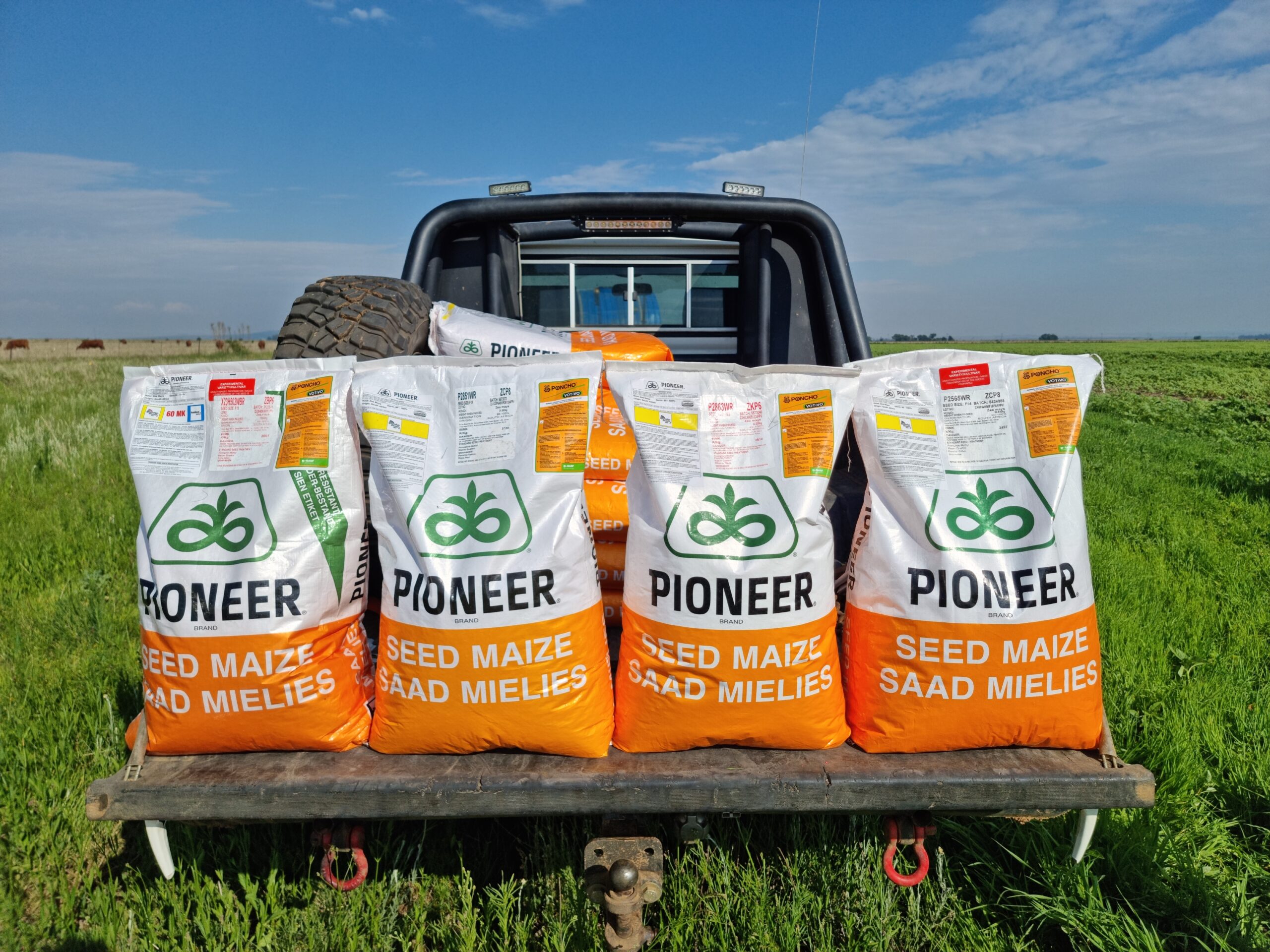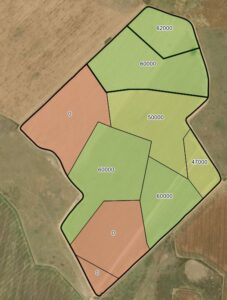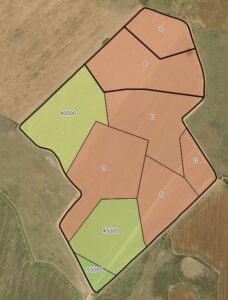The key to successful crop farming is planting the right product on the right hectare. And the way to determine what is the right product for the right hectare, is to plant trials. This is exactly what the popular and well-known seed supplier, Pioneer, does.
Francois Marx, farmer of Efraim Farming near Vredefort in the Free State and one of the farmers planting Pioneer trials, tells us more: “My grandfather grew up on the farm next door, whereafter his father bought him this farm, and I was given the privilege to carry on with the legacy and farm here as the third family generation.”
We farm in a more marginal part of our country; we do not have the good soil of the West nor the rains of the East. We have been farming for the past twelve years under the name Efraim Farming, which means: prosperous and numerous.”
We have a mixed farming operation, which is divided into a crop section, for which I am responsible, while my brother manages the livestock section, which consists of commercial beef cattle. We grow maize, soybeans and sunflowers using a three-year crop rotation system,” Francois adds.
Focused on precision and technological advancement
Francois explains: “We have been collecting good data for several years now through precision systems. We can make better decisions regarding soil types, various plant populations, and the need for fertilisation, thanks to the data we have already gathered.
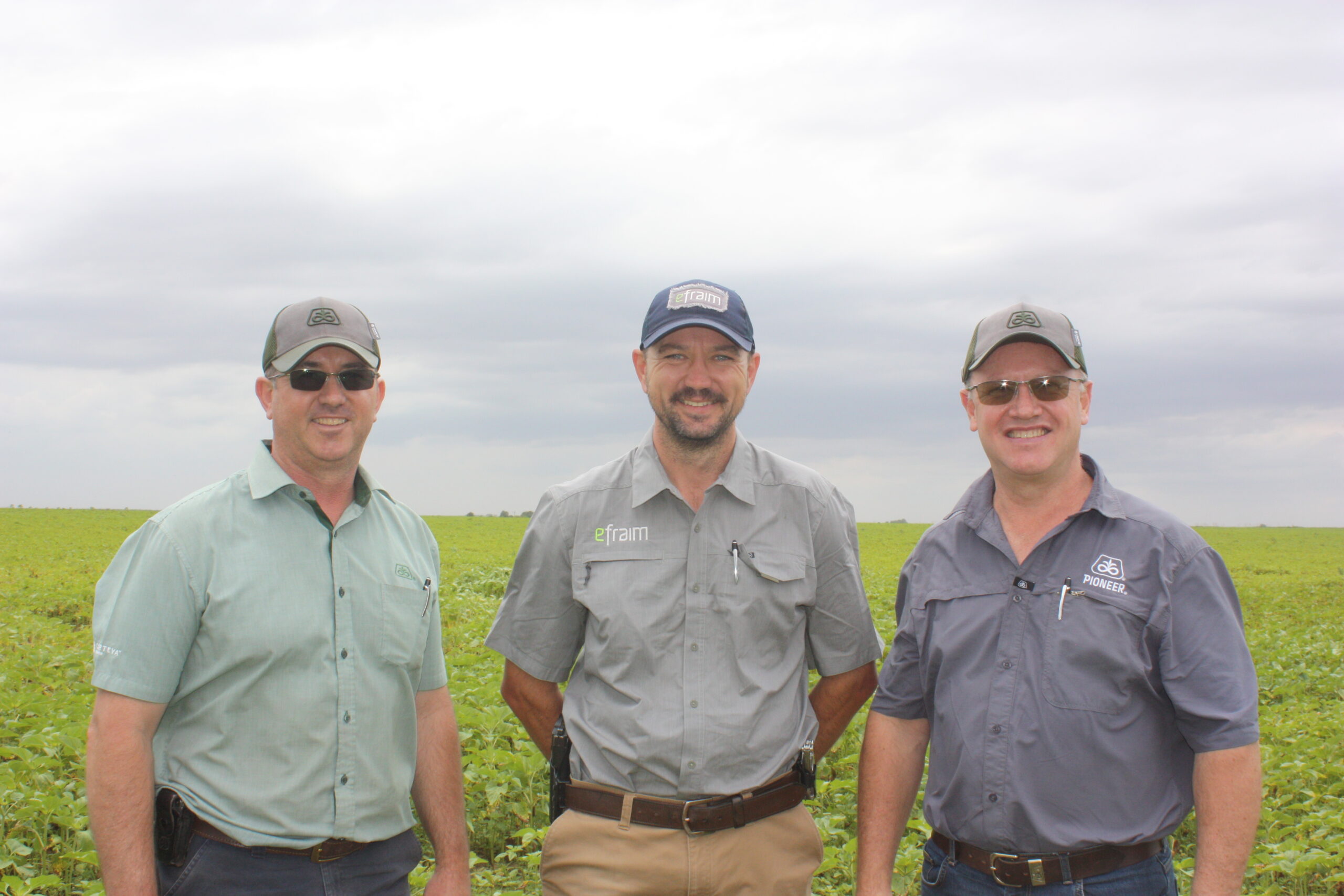
Martin Brandt, Pioneer agronomist; Francois Marx, owner of Efraim Farming; and Hennie du Plooy, regional manager of Pioneer.
“We inherited no-till from the previous generations, and as we all know, you just begin with what you have. We then realised that this was not quite the way forward for us with our soil type.
“Over the years I have learnt from other prosperous farmers in the area, and this is where the bug of precision farming bit me. Ever since I started to apply more technology to my farming operation, I realised that the return on investment is so much more.
“I also reached out to the team at Cereal is and Precision Planting. The advantage of precision farming is that it allows me to collect all data, which also guides me to make better decisions based on the data.”
Efraim Farming’s relationship with Pioneer
“With Pioneer, we planted trials for the first time last year. We did not really know what to expect because these were our first trials. In our area we have very diverse and different soil types and this poses special challenges to the farmer,” says Francois.
First, a new-of-its-kind trial
Every year, Pioneer plants several different types of trials, such as PKP (product knowledge plots), DAT (digital agronomic trials), and the first-ever multi-cultivar trials, which were first planted at Efraim Farming.
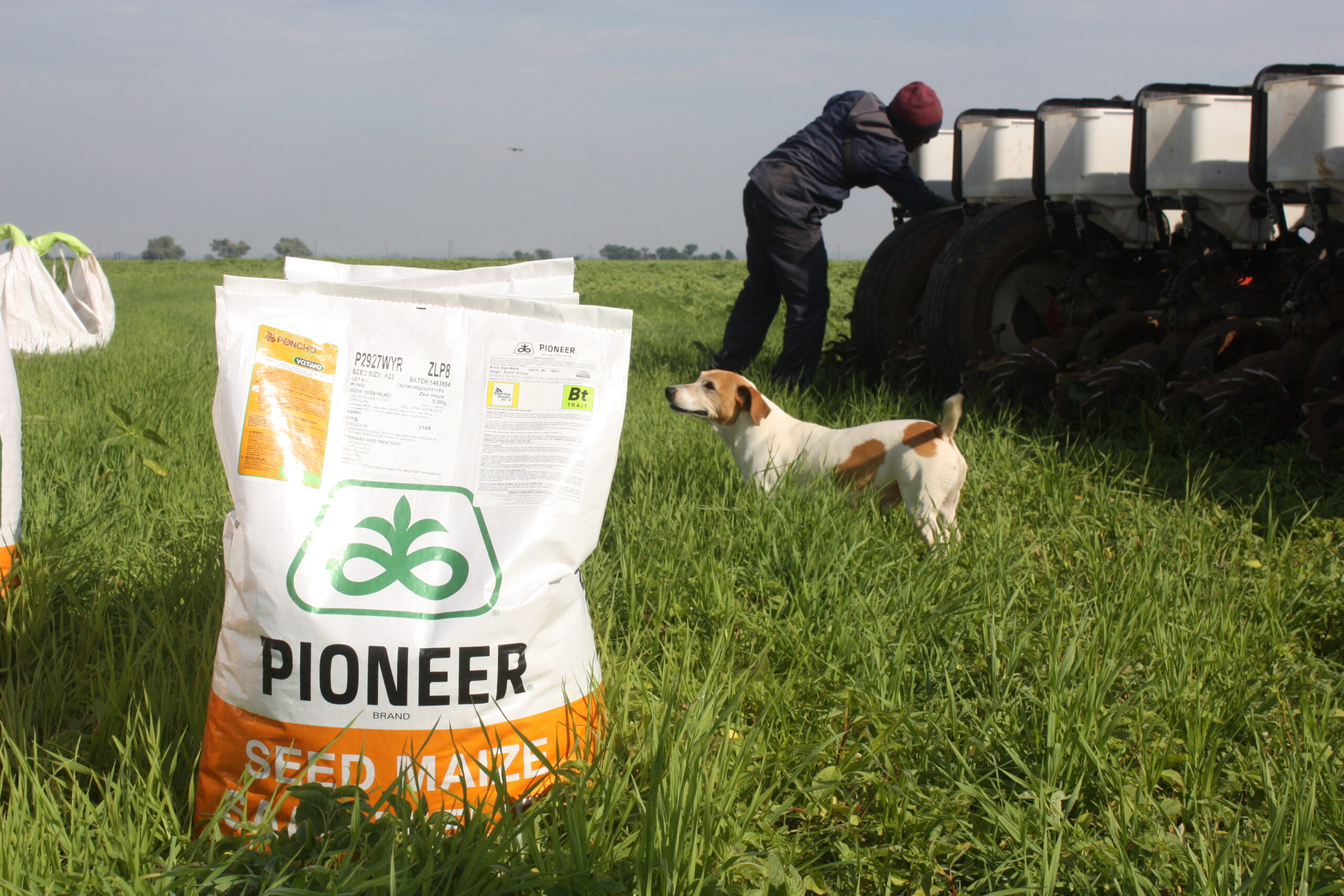
The Pioneer team’s innovative research and data analysis methods are based on farm size research, which enables them to manage diverse variable factors that impact on grain production. The latest research and unique digital programmes are used to improve grain production and add value to the farmer – with Pioneer genetics.
Pioneer Agronomist for the North-West and North- and Western Free State, Martin Brandt, explains more: “The trials planted at Efraim Farming are the so-called DAT trials where a specific cultivar is planted according to the right type of soil, right condition, and right area. The multi-cultivar trial, which is also the first trial of its kind to be conducted, involves planting two cultivars concurrently in the same row in accordance with a prescription map. As technology has improved, we are now able to create a prescription map that shows which cultivars should be planted where in die field and at what plant population.
“As you move through a particular soil zone, you can plant the cultivar that will do the best on that particular plot of field, followed by the new cultivar in the next zone.
“Harvester data from the previous planting season is gathered, and recommendations for the next planting season are compiled by Pioneer’s experts, which is shared with the farmer,” Martin further explains.
Expectations of the trials
Francois elaborates on his expectations for this year’s trial: “When we planned the trial with the Pioneer team, I mentioned to them that this year I am giving them one of my better fields for the trials, so we have to do really well and not disappoint, especially in an expected wet year.”
The prescription card that was used to plant the multi-cultivar trial. The P2555WBR cultivar prescription is on the left, and the P2927WYR cultivarprescription is on the right.
“The Pioneer team is very excited about some of the varieties being planted, and when these new varieties and genetics are planted and tested on your farm, you automatically have a foot in the door for future orders,” says Francois.
The importance of trials to Pioneer
According to Hennie du Plooy, Pioneer’s Regional Manager for the North-West and North- and Western Free State: “The goal of trials for Pioneer simply means that we can make the right recommendations for farmers.”
“New cultivars are planted in a specific area against various plant populations to see where they can be planted, which type of soil they prefer, and which plant population will yield the best results.
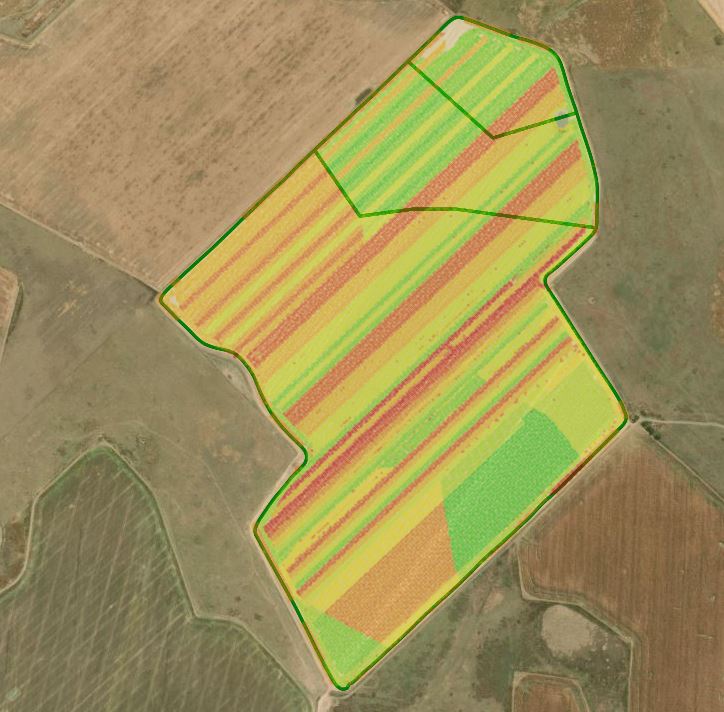
The planter map after the planting process was completed. On the map it is clearly visible where the different rows are in the field, as well as where the changes from one zone to another was.
“For us at Pioneer it is of utmost importance to have a good relationship with the farmers in our area and also to ensure that farmers can make the right choices from the variety of cultivars available to them, and for their specific climate and region. We want to take hands with the farmer and support them from day one,” Hennie adds.
“When we identify farmers to plant specific trials with, it is important that we determine in advance what we would like to achieve with it,” Hennie elaborates.
The questions asked in advance are:
- What is the goal of the trail?
- Will planting trials be beneficial to the farmer?
- Is the focus in the right area?
- What is the soil type and soil mapping?
“Farmers are identified by our agents in the field, whereafter we meet with them and discuss the necessary details. It is crucial that the farmer with whom we conduct the trials has the necessary equipment in order to conduct the trials correctly and successfully.”
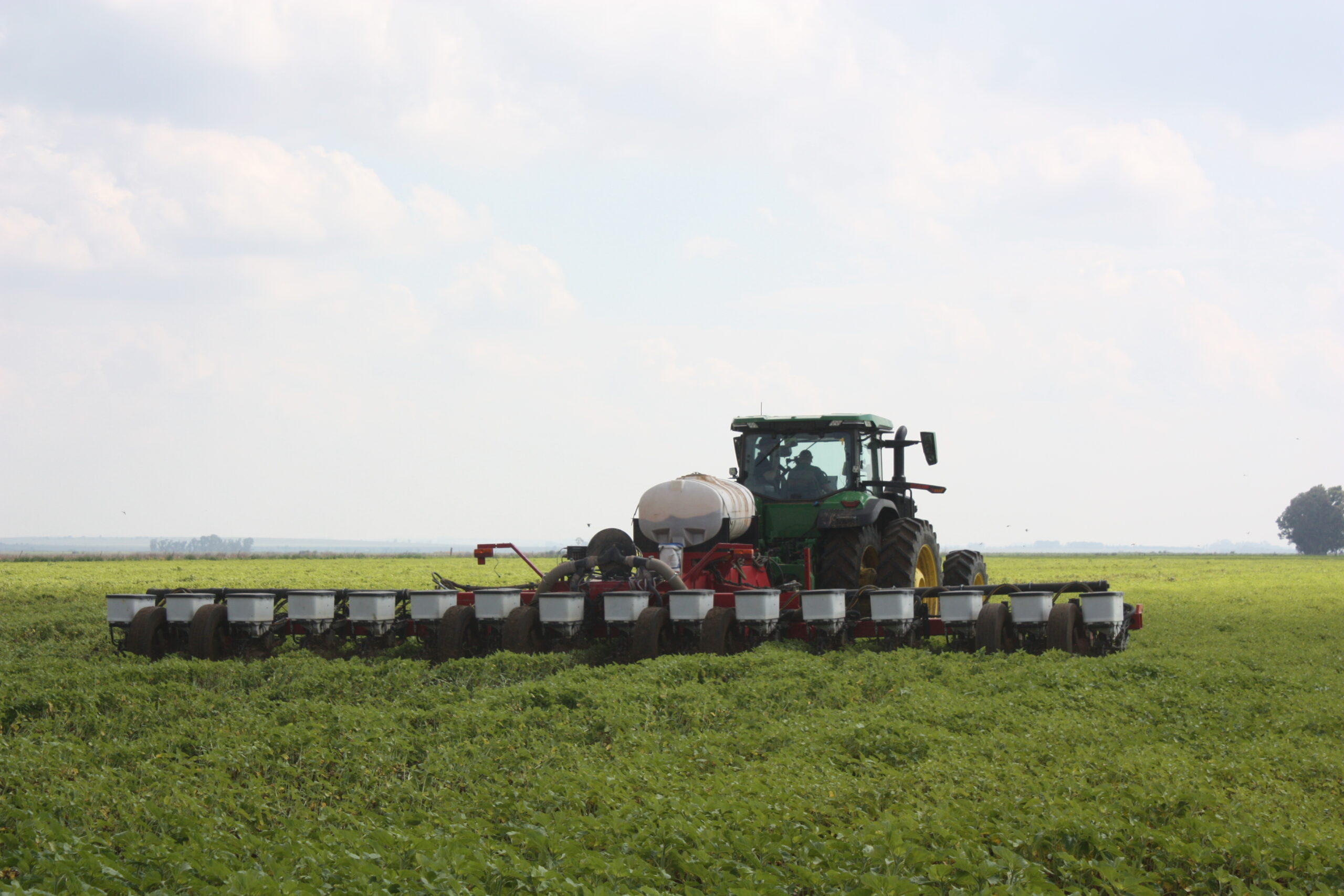
At Efraim Farming, planting is done in the correct way and with the right equipment.
What benefits does the trial provide for the farmer?
“In today’s farming practices, especially for farmers who are more focused on precision farming, data is worth its weight in gold. Through the trial planting process, the farmer gets data at his disposal, as well as a foot in the door for future decision-making on seed and cultivar choices according to his farm’s data.
“We want to build up a wide variety of agronomic expertise, specialties and experience to support our farmers and give them the right advice,” Hennie concludes.
Pioneer’s promise to farmers is commitment to finding solutions to help improve yields and increase the productivity of farmers around the world.
Visit Pioneer’s website at https://www.pioneer.com/za for more details, or contact them by e-mail at info.rsa@pioneer.com.

